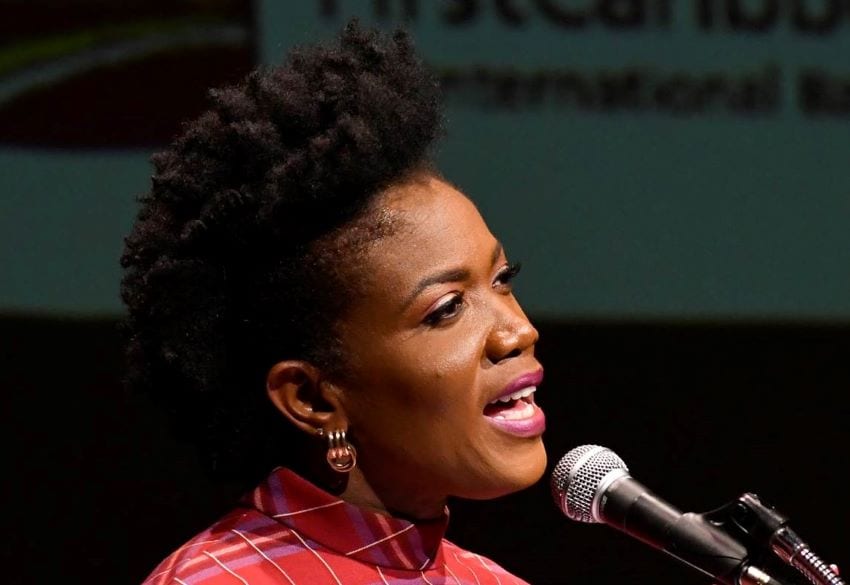Minister in the Ministry of Economic Affairs and Investment, Marsha Caddle believes that amid the current pandemic, caused by the spread of the novel coronavirus, COVID-19, it is important that Barbados does not lose sight of its long term transformation goals.
She was speaking during an online panel discussion on the topic, Policies to Fight the Pandemic: Barbados in Focus, held on Friday, April 24, by the Inter-American Development Bank (IDB).
Minister Caddle noted the COVID-19 crisis highlighted that global economic structures needed to be revised and warned countries to not only pay attention to relief but to stimulus during this time.
According to the Minister, “This is something that really calls for a revisioning of our global economic structures and a revisioning of our global financial architecture; how it responds, how we classify countries and what we understand by vulnerability and how shocks affect different kinds of countries…. This is not like the 2008 financial crisis, which was really about demand, [or rather] a demand shock; this is really about a supply shock like 9/11.”
Explaining the similarities between the latter examples, she noted that markets closed down and there was an impact on tourism because persons were not travelling back then, and this was happening again.
Addressing recommendations by other panelists to “focus on relief and not so much stimulus,” she said, “I also think that we have to understand what we mean by stimulus. We do have to focus on relief but we have to prepare our economies to grow again and that is important.”
She said many regional countries had been implementing adjustment and reform programmes before the pandemic hit. For instance, Barbados had already begun to roll out policies that would impact households and businesses under the Barbados Economic Recovery and Transformation (BERT) plan, which focuses on fiscal and debt sustainability, and increasing growth among other goals.
“So it really depends on your context and baseline and what your long term objectives are,” she said, stressing: “I say this because our goal is not to lose sight of what are our long term transformation goals.”
She agreed with fellow panelist, David Rosenblatt, a regional economic advisor with the IDB, who suggested that Caribbean countries needed to be aware of what they wanted their countries to look like after COVID-19.
Minister Caddle said: “This is the prime opportunity to focus on those long time transformation goals. So I want to caution while we focus on short term relief and short term measures, it would be a mistake to lose sight of what the long terms goals are and the long term macro-planning…. It is important to understand that where we have started from, our baseline, has implications for the policy space that is available, it has implications for the fiscal space and it implications then for the international financial response required.”
The Economic Affairs Minister pointed out that Barbados successfully completed an external debt-restructuring programme and lowered its debt to GDP from 175% to 118%.
She added that prior to the pandemic, the country had increased reserves to the highest level ever kept at the Central Bank, and moved from a deficit into a surplus position.
She remarked that 95 countries had applied for fast disbursing IMF emergency funds, over ten times higher than those that did in the 2008 crisis.
She emphasised that the fallout from COVID-19 affects all high, middle and low-income countries “because in many ways it has reset our baseline to zero”.
Minister Caddle noted that some of the measures government were looking at included establishing a Green Energy Fund to assist hotels with refurbishment and upgrades during this period; a way to help citizens to build their assets and create buffers for themselves through a Barbados Asset Management Company; as well as a Homes for all programme.
Noting that while some may not refer to these initiatives as “stimulus”, she explained government saw these ventures as long-term investments which should help with recovering from the crisis. She stressed this was a time to look at new investments and models which would contribute to growth, that are necessary for the island’s long-term trajectory for transformation.




